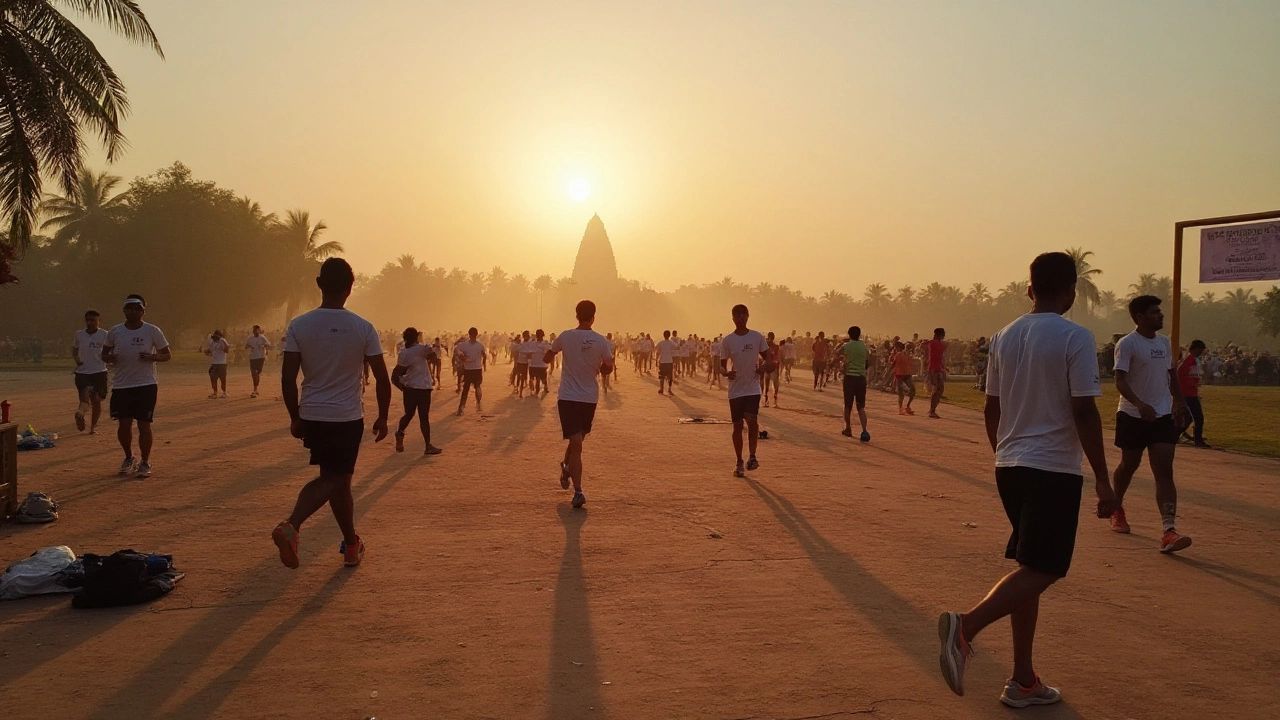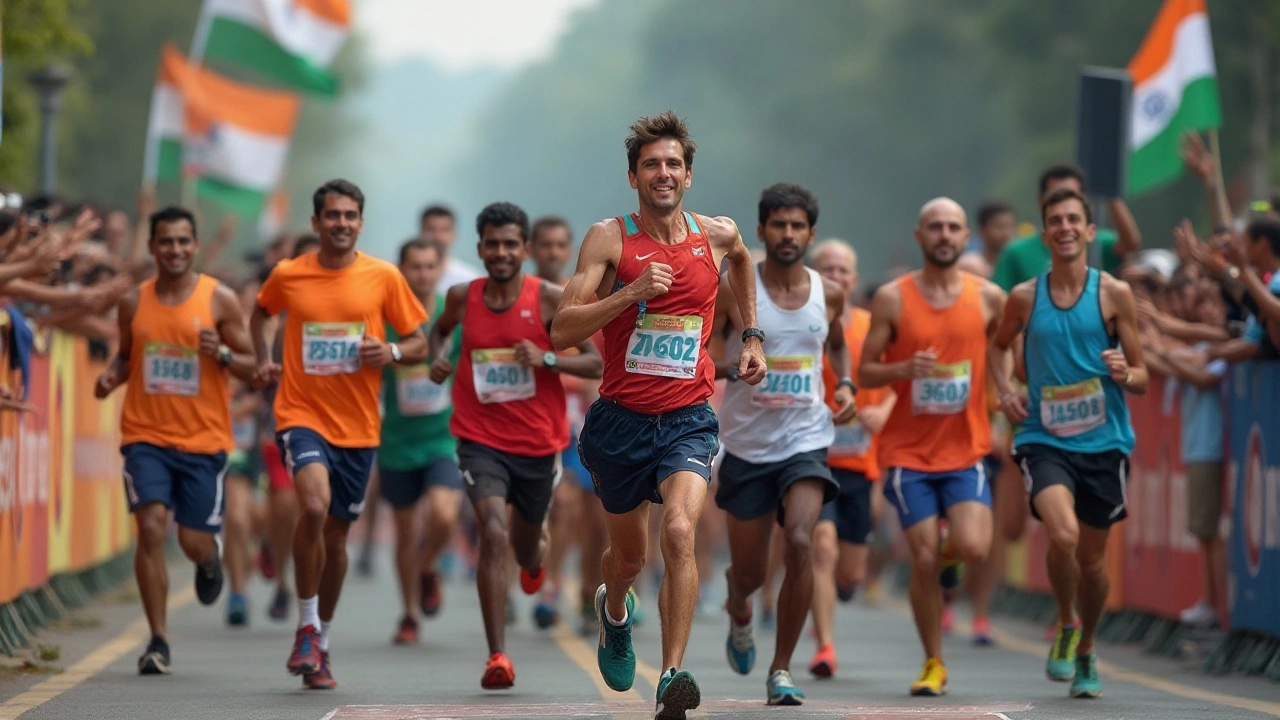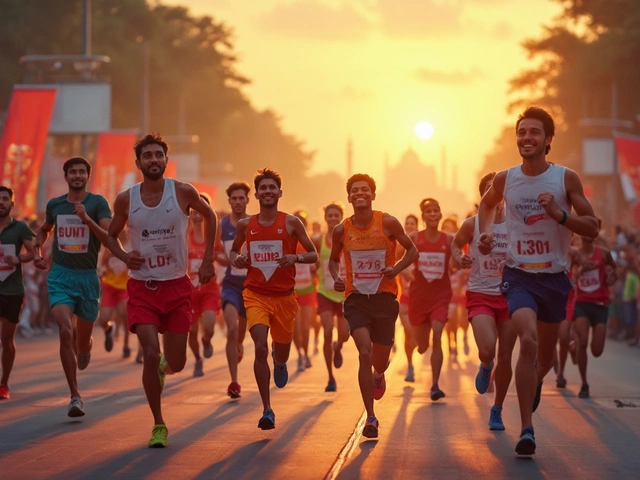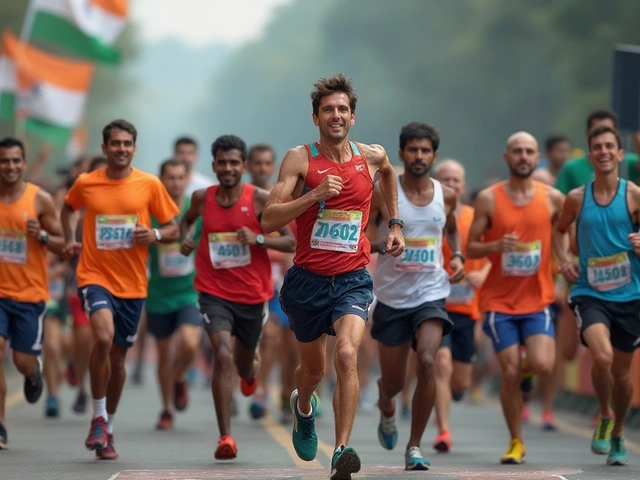When it comes to marathons, every runner has their own unique journey and goals. A 7-hour marathon might not break world records, but it stands as a personal triumph for those who achieve it. As you lace up your running shoes and set your sights on this goal, it’s important to understand what this timing means in the vast world of marathon running.
Not everyone seeks to dash across the finish line in record-breaking time. Many runners embrace the marathon experience for the thrill, community spirit, and personal challenge it offers. This article navigates the ins and outs of aiming for a 7-hour marathon finish, from understanding pacing to embracing the preparation process.
- Understanding Marathon Finishing Times
- Pacing Strategies for a 7-Hour Marathon
- Training Tips for Marathon Novices
- Mental and Physical Preparation
Understanding Marathon Finishing Times
Marathon running is an endeavor that comes with its unique tapestry of challenges and triumphs, painting each journey with the brush of personal achievement. Whether it’s the elite athletes slicing through 26.2 miles with the speed and grace of gazelles, or the everyday runner who bravely tackles the same distance at a different pace, the experience is profound.
To put things in perspective, the average marathon time widely varies depending on a host of factors such as age, fitness level, and the particular marathon course itself. According to statistics from the Marathon Handbook, the median global time spans around four hours and twenty-nine minutes, although this number adjusts due to different terrains and participant demographics. While a marathon under three hours tends to be the domain of seasoned runners and elite competitors, finishing in seven hours offers its own brand of respectability, especially among those who are newly initiated into long-distance running.
Finishing a marathon in seven hours equates to a pace of a little over sixteen minutes per mile, which is a steady and attainable pace for various levels of runners, especially those balancing enjoyment and endurance over sheer speed. It's the journey, not just the destination, that captures the spirit of many marathoners who operate at this pace. Marathon events often set a finish line cut-off, typically hanging around the six to eight-hour mark, designed to ensure safety and logistics, so discovering that a 7-hour marathon aligns with these standards means participants can confidently race towards their goals without undue pressure.
Michael Wardian, an accomplished marathoner known for his daunting endurance feats, once shared with the New York Times: "Every finish line has its own story... no matter how long it takes to get there." This perspective resonates with many, refocusing the marathon experience from a race against others to a personal voyage of self-discovery and endurance.
In a broader scope, understanding how your own timing fits into the larger marathon culture can enhance your training and race experience. With hundreds of marathons across the globe, from the exuberant streets of the New York City Marathon to the picturesque trails of Athens, each race presents its own course dynamics that can affect timing. All told, a 7-hour finishing time remains a commendable goal within the expansive community of marathon running, opening the gate to stories of perseverance, companionship, and personal record-breaking adventures.

Pacing Strategies for a 7-Hour Marathon
Running a marathon in under seven hours requires careful planning and the right pacing strategy. While it might not be the pace aimed by professional athletes, it is a testament to sheer willpower and determination. Aiming for this finish time means you’ll be running at about a 16-minute per mile pace, which can vary slightly depending on the terrain of the course. The goal here is consistency, maintaining a steady rhythm that keeps you going without exhausting your energy reserves prematurely. To achieve this, one essential trick is practicing negative splits—running the second half of the marathon slightly faster than the first half. This method helps conserve energy early on, allowing you to pick up the pace once you’re fully warmed up, and in your rhythm.
Adequate pacing isn’t just about speed; it’s also about energy management. As you might already know, marathons are as much about mental challenges as they are physical ones. One great technique is to break the marathon into smaller segments and focus on achieving one segment at a time. This way, you're less likely to feel overwhelmed by the monumental task at hand. Visual landmarks can be useful cues to remind you when to adjust your pace or take note of your progress. To keep track, a running watch or mobile app can be your best friend, providing real-time data about your pace and helping you stay on target.
According to renowned coach Jeff Galloway, renowned for his ‘Run-Walk-Run’ method, incorporating short walk breaks can significantly improve endurance and reduce fatigue.
“The idea of maintaining some pace with walking breaks is an extremely powerful tool for runners, especially those targeting longer finishing times. It’s a smart way to complete a marathon with less risk of injury.”Applying walk breaks is more than just a physical tonic; they offer psychological reprieves, giving you brief moments to reset and muster strength.
Nutrition and hydration play critical roles in maintaining your marathon timing. While pacing, be mindful of consuming carbs and electrolytes to prevent depletion. Many runners adhere to the strategy of ‘fueling every hour’ by having energy gels, bananas, or sports drinks readily available either at aid stations or through personal arrangements. A proper nutrition plan not only sustains your physical performance but aids in keeping your mind sharp, even when your legs grow weary. And while on race day it is key, its importance cannot be overstated during training—after all, practice makes perfect.
Finally, when planning for a 7-hour marathon, consistency in training cannot be emphasized enough. Training prepares both body and mind for what's coming. Long, slow distance runs build up stamina, while shorter, more intense sessions improve your speed. Cross-training activities, such as swimming or cycling, can provide variety and strength training enhances endurance. With patience and the right pacing strategies, finishing a marathon within 7 hours can transform from a daunting goal into an achievable milestone.

Training Tips for Marathon Novices
Setting out to run a marathon requires commitment, dedication, and a well-thought-out plan, especially if you're new to the world of long-distance running. For many aspiring marathoners, achieving a 7-hour marathon finish is both an ambitious and realistic goal. The journey begins with understanding the basics of marathon training, where novice runners need to pace themselves both physically and mentally. With the right mindset and a solid plan, anyone can transform from a beginner into a confident marathon finisher.
It's essential to start with a structured training plan, ideally spread over 16 to 20 weeks. This gives your body ample time to adapt to the increased demands of running longer distances. A typical plan for a beginner might include three to five runs each week, balancing between short and long distance days. Begin with manageable distances, gradually increasing your long runs by about 10% each week to build endurance. Remember, rest and recovery are just as crucial as the mileage; this is the time when your muscles repair and get stronger. Rest days should be interspersed within your week to prevent injury, allowing your body to catch up with the intensity of training.
Building endurance is the cornerstone of marathon training, but you shouldn't neglect strength training. Incorporating exercises like squats, lunges, and core workouts can strengthen the muscles that support your joints and improve overall running efficiency. A strong body can sustain a rhythm much better, especially over longer distances. Many novice runners are surprised by the impact strength training has on their stamina. Cross-training activities like cycling or swimming can also enhance cardiovascular fitness while providing a low-impact alternative to running.
Nutrition plays a pivotal role in your training regime. Fueling your body correctly can enhance performance and recovery. Aim for a balanced diet rich in carbohydrates, proteins, and healthy fats, tailoring your intake to match your increased energy expenditures. Dehydration is a common pitfall during training, leading to diminished performance and recovery. Make hydration a priority by developing a routine both in training and during the race itself. As author and marathon running coach Hal Higdon wisely said,
“Running long takes practice, and it not only takes practice for your legs and your lungs, but it also takes practice for your digestive system.”
Listening to your body is vital. Each runner is unique, with different tipping points when it comes to overtraining and burnout. Pay attention to the signals your body sends. Fatigue, unexpected pain, or prolonged soreness are indicators that your body might need additional rest or a reduction in intensity. Underestimating the importance of these signals can lead to injuries or demotivation. Consider keeping a training journal; documenting your experiences can help you identify patterns and tailor your regimen for optimal results.
Building a supportive network can be beneficial as well. Many first-time marathoners find motivation through local running clubs or online communities, offering support, tips, and encouragement from fellow runners who have similar goals. Participating in group runs can provide both social motivation and an enjoyable way to get through the miles. Additionally, sharing your progress with friends and family can lend you moral support, keeping you motivated throughout the highs and lows of training.

Mental and Physical Preparation
Tackling a marathon, especially aiming for a specific time like a 7-hour marathon, requires not just physical endurance but also mental fortitude. It's not uncommon for runners to hit a proverbial wall during the race, where physical fatigue is compounded by mental exhaustion. This makes mental training just as important as physical conditioning in a runner's regimen. Developing a strong mindset involves visualization techniques, fostering positive self-talk, and setting realistic goals. Visualization can mean picturing yourself successfully crossing the finish line or even imagining overcoming challenging portions of the race. Such mental exercises build confidence and help in preparing for the unknowns that marathon days might throw at you.
The physical aspect of training involves crafting a well-rounded training plan that gradually builds your stamina and endurance. For marathon novices aiming for a seven-hour marathon timing, it is crucial to establish a baseline of aerobic capacity before increasing distance. Consistency is key, and a mix of long runs, interval training, and rest days creates a sustainable training regimen. Engaging in cross-training activities like swimming or cycling can also enhance cardiovascular strength while preventing overuse injuries. Staying injury-free is vital for continuous progress, so incorporating strength training and flexibility exercises, such as yoga, is beneficial.
Nutrition and Recovery
Proper nutrition plays a pivotal role in both mental and physical preparation. Adapting to a balanced diet ensures your body has enough energy stores for prolonged exertion. It's fundamental to understand the concept of 'carb-loading' before a race, which means increasing carbohydrate intake a few days leading up to your marathon to fuel the race efficiently. Post-run recovery is equally significant and rehydrating, replenishing electrolytes, and consuming protein-rich foods assist in muscle repair. With ongoing training, understanding your body's specific nutritional needs becomes essential in optimizing performance.
Equally important to physical preparation is ensuring mental toughness during a run. Developing resilience comes from both experiencing and learning from less-than-perfect training days. Often, the mental battle is where races are won or lost, making mental endurance a cornerstone of training. Laura Hillenbrand once wrote, "The paradox of difficult times is that these are the very times we need to lean into rather than escape." Perseverance is built by facing adversity head-on, learning to push through demanding parts of a marathon, and finding strength in moments of doubt. As with building physical strength, cultivating mental tenacity requires regular practice, introspection, and often, discovering joy in the journey itself.
Sleep and Stress Management
Often overlooked, prioritizing sleep and managing stress levels are crucial facets of marathon training as they impact both mental and physical well-being. Establishing a consistent sleep schedule allows your body to recover effectively, while mindfulness practices like meditation can aid in stress reduction. High levels of cortisol, the stress hormone, can hinder recovery and increase fatigue, so integrating stress management techniques into your regimen can boost overall performance. Keeping a training timeline that acknowledges the need for rest days can prevent burnout and maximize running results. This holistic approach ensures you are prepared to embrace the journey of completing a marathon in 7 hours, encapsulating both the exhilarating high points and the formidable hurdles along the way.





